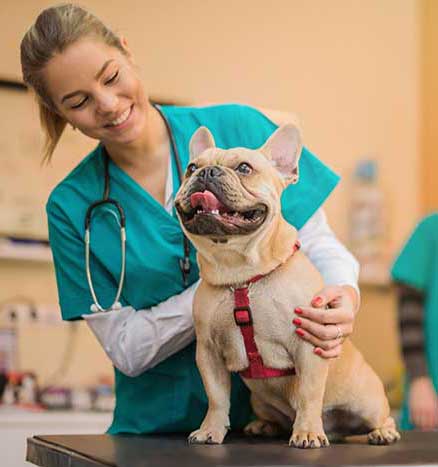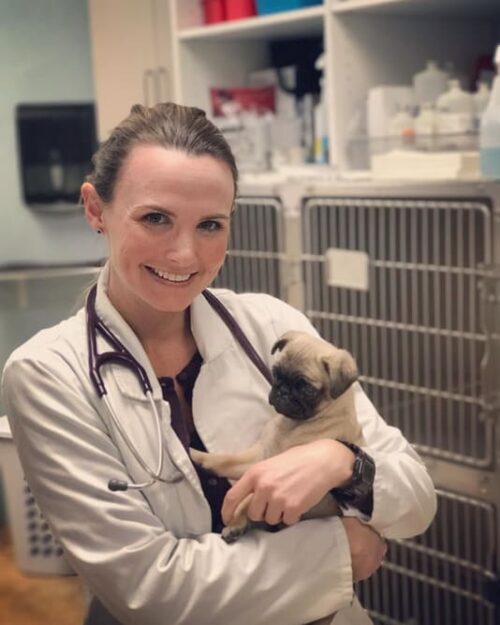End of Life Care for Your Pet by Reed Animal Hospital
Making End of Life Decisions for Your Pet
Reed Animal Hospital provides pet owners with compassionate end-of-life care for their cats and dogs. We understand the emotional impact losing your pet can have on your family. Pets are members of our families. If your pet has been diagnosed with a terminal illness, the empathetic and knowledgeable team of veterinarians at Reed Animal Hospital provides several care plans for your furry friend to maintain their comfort and provide them the best care. If you believe your pet is suffering, contact us today. Dr. Reed can and the staff at Reed Animal Hospital can provide you with a consultation on how to navigate these difficult times.

How to Care for Your Elderly Pets
It’s essential that you have a plan in place to care for your elderly pet to ensure they are comfortable. Due to limited mobility, your pet may struggle to stand up. You can assist them by lifting them up. If you have a larger dog, it may help to place a towel underneath their stomach to help them to their feet. Also, it’s important that wherever your pet sleeps, it is adequately cushioned to prevent pressure sores. Lastly, you can help comfort your pet by placing a favorite toy or blanket near where they are lying down.
Older pets are much more sensitive to heat and cold than younger ones. Make sure they have protection from heat and sun and have plenty of cold water during the warmer seasons. Older pets find it harder to regulate their body temperature during colder weather. Keeping pets inside except for walks during extreme cold periods or when the temperature drops. During walks, make sure your pet is bundled up with a sweater or coat.
A common issue with older pets is incontinence, the inability to fully control the bladder or bowels. Pets can feel shame and worry about feeling disciplined. Treatment can benefit from medications and supplements. If you feel your pet is suffering from the effects of incontinence, a few things are can do are:
- First and foremost, consult with your veterinarian, because many causes of urination and fecal incontinency are treatable with proper medication.
- Increased frequency of walks and taking your pet out after meals, drinking, and getting up.
- Waterproof liners or covers on beds.
- Doggie diapers.
- Cleaning soiled areas with enzymatic cleaners to prevent your pet from being attracted to the same areas.
- Frequent bathing and cleaning of your pet’s genital areas to prevent odor and irritation.

What Are the Signs My Pet Is In Pain?
Over the years, your pet has become a member of your family. You know their personality and their routine. While your pet cannot tell you that they are in pain, there are several signs that may indicate to you they are suffering. Identifying these signs and acting upon them quickly can be a pivotal part of ensuring that your pet is given the best quality of life possible. Some of the warning signs that your pet may be in pain include:
- Hiding – Hiding is one of the most noticeable signs that your pet may be in pain. If your pet is normally sociable and enjoys being around others but now prefers to spend more time alone, it may be because they are in pain.
- Not Eating Well – Some days, your animal may simply not feel well, but if you’ve noticed they are going more than a day without following their normal eating and drinking routine, it may be a sign that there are more chronic issues.
- Weight Loss – Weight loss may be an indication that your pet isn’t eating well. However, sometimes, even with proper died if your pet is in pain, they can lose weight.
- Less Active – Every dog has a different level of activity. As the pet parent, knowing when your cat or dog is chronically lethargic could mean the difference between providing them with the right pain management routine.
- Trouble Moving – If your pet is having trouble standing, seems uneasy while walking, walks with a limp, or falls, it can be a sign they are in pain.
- Increased Vocalization – Your cat or dog may whimper, howl, or whine due to pain. If your animal’s vocalization has increased recently, contact Reed Animal Hospital.
How to Cope with Pet Loss
The grief you feel due to your pet’s death can be just as great as losing a friend or family member. At Reed Animal Hospital, we are here to assist you by providing resources for you or any family member who needs help coping with the loss of a cat or dog. Our knowledgeable and experienced team of professionals will work with you to find the proper support network so you can openly and honestly speak about your feelings and process your grief.
Choose the Right Animal Hospital for End-of-Life Care
When you choose a veterinarian for your pet’s end-of-life care, you need someone that is experienced and compassionate. Luckily at Reed Animal Hospital, we provide both. We are open 7-days a week to handle all of your pet care needs and emergencies. Dr. Reed can make house calls to reduce stress and ensure that your pet feels safe and comfortable while you get to say your goodbyes. Contact us today to learn more about end-of-life care services.
We will always answer your questions and concerns with compassion and be forthright. We are all pet parents as well as veterinarians, and will guide you to the right decision as if it is our own pet.
